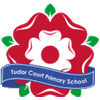Humanities
History
Our history curriculum is well sequenced to provide a coherent subject scheme that develops children’s historical knowledge, skills and subject disciplines. Key aspects and concepts, such as chronology, cause and effect, similarity and difference, significance and continuity and change, are revisited throughout all topics and are developed over time. All topics develop historical skills based on evidence and historical enquiry.
Different moments and events, people and places in history are not to be seen as a series of separate stories but rather as all parts of the tapestry of world history. This is supported by the deliberate focus on core ‘threshold concepts’ – key historical ideas and understandings – that are revisited and built upon across numerous topics and analysed from the perspectives of different historical eras. We have adopted a similar approach to designing individual topics, ensuring that knowledge is built sequentially and that there are repeated encounters with key facts, ideas, and concepts. By providing opportunities for pupils to apply their knowledge and skills within applicable historical contexts, we can deepen their understanding and foster independent thinking while assessing learning and progress.
The choice of historical periods follows the guidance set out in the national curriculum, with specific details relating to significant events and individuals chosen to present a rich and diverse account of British and world history.
Geography
‘Geography underpins a lifelong ‘conversation’ about the earth as the home of humankind.’ Geography Association.
Our aim is for our pupils to develop a dynamic, informed, and critical understanding of the world around them through studying local and global environments, natural and human processes, intercultural understanding, and life-long mapping skills. The geography curriculum is well sequenced to provide a coherent subject scheme that develops children’s geographical knowledge, skills, and subject disciplines. Our curriculum also builds our pupils’ capacity to anticipate and respond to future challenges locally and globally by learning about environmental issues such as the climate crisis, deforestation, and plastic pollution. It helps our pupils reflect on and sometimes act to mitigate how we impact other lives, environments, and places, and consider sustainable approaches to living.
Our geography curriculum enables our pupils to discuss how to build a better world – a world in which cooperation, fairness, sensitivity and kindness to each other and the environment that sustains us become our guiding values. Lessons allow pupils to work collaboratively on a shared issue/problem, understand different viewpoints, identify patterns and processes, and recognise complexity and connectivity in decision-making.
Geography skills are taught and developed at every stage enabling pupils to plot, measure and record patterns and processes. For example, from an early age, map skills are developed incrementally, from simple map directions with simple symbols and maps in EY settings to compass points, positional language, and world maps at KS1. Older pupils can tackle increasingly complex maps with grid references, distances, keys, bearings, and symbols.





